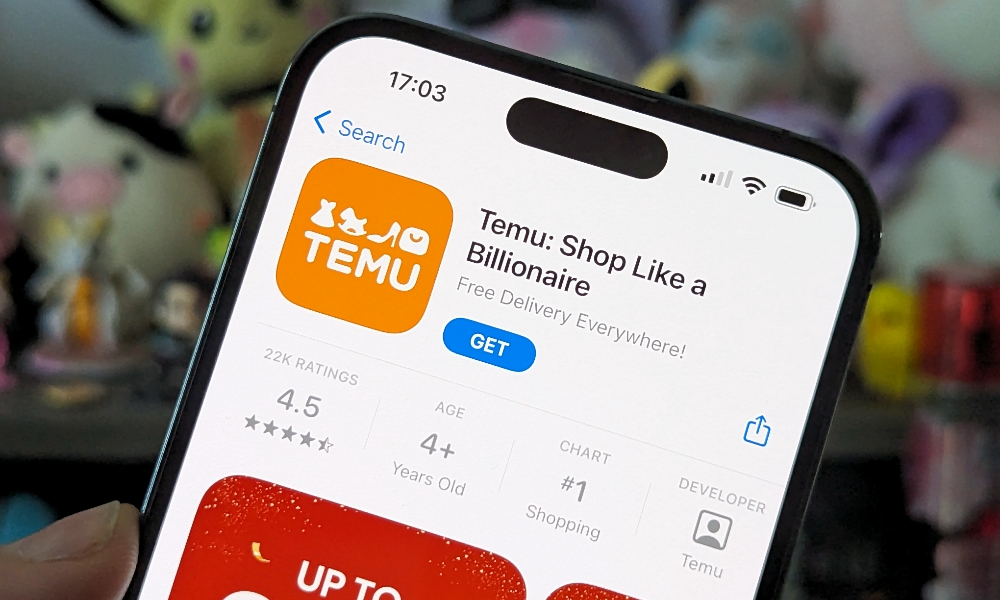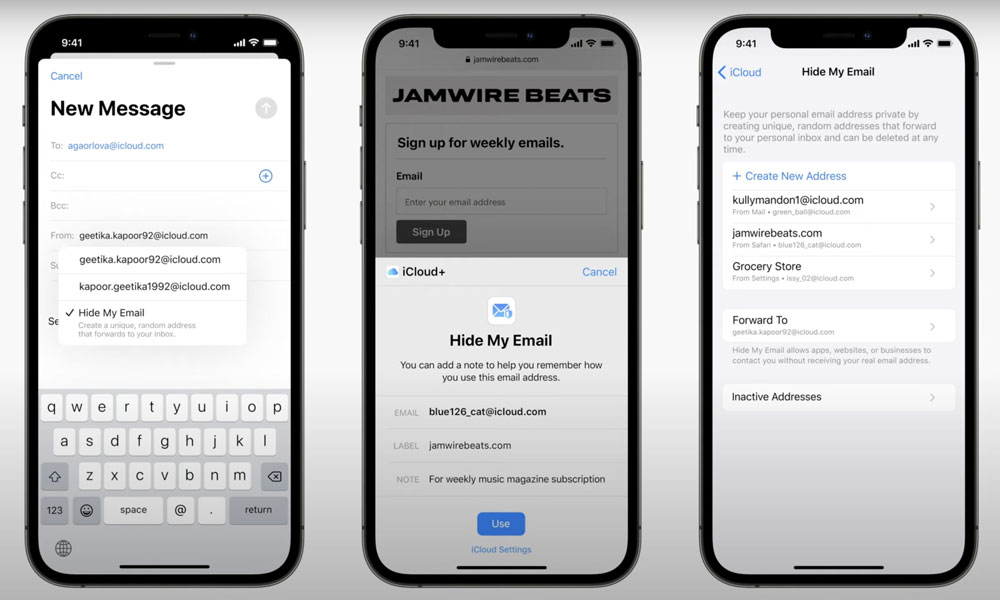What is Temu and Why Do I See Those Ads Everywhere
 Credit: Jesse Hollington / iDrop News
Credit: Jesse Hollington / iDrop News
Toggle Dark Mode
If you’ve spent any significant time online in the past few weeks, you’ve probably seen an overwhelming number of ads for Temu, a new shopping app and service that seems to be taking the world by storm.
You may have even heard from a friend or family member that’s looked at Temu and maybe even ordered something from it.
But what is Temu exactly? Some suggest it could be the next Amazon, a plucky little startup undercutting the 800-pound retail gorilla with rock-bottom prices thanks to Costco-style economies of scale. Others are considerably more skeptical, pointing to its Chinese roots and even calling it out as potential spyware and malware.
If you read the online reviews, you may be led to side with the former, as Temu seems to have so many enthusiastic shoppers. However, that alone may be enough to raise a red flag. After all, when’s the last time you saw a business, product, or app receiving nearly universal praise and minimal criticism — unless, of course, people were being incentivized to say nice things?
What is Temu?
Over the past few months, Temu has risen to become the most-downloaded shopping app on both the Apple App Store and Google Play Store, quickly rising to second place overall.
The app promises steep and almost unbelievable discounts on a wide range of products shipped directly from Chinese suppliers. It claims that it can do this by cutting out the middleman distributors and relying on the kind of discounts that stem from bulk purchases.
Temu is an amalgam of the slogan, “Team Up, Price Down,” which spells out what it claims to be its core business strategy. The more people “team up” to buy specific products, the cheaper those products get, as Temu can then place a bulk order from its suppliers to fulfill all those customer orders simultaneously.
However, Temu has another strategy up its sleeve — giving away free stuff to folks who promote the app on social media and refer friends and family. Remember what we said earlier about people being incentivized to say nice things? Well, this is likely the main factor that’s turned Temu into an overnight sensation.
While Temu is a new US phenomenon, it’s a new sister company to Pinduoduo, an e-commerce giant that’s been doing the same thing in China for several years now. Pinduoduo’s parent company, PDD Holdings, launched Temu last fall to bring the same strategy to the US market, leveraging what it calls the “deep network of merchants and logistic partners” that it built with Pinduoduo.
Even though Temu is officially headquartered in Boston, it’s a wholly-owned subsidiary of PDD Holdings, a Cayman Islands company traded on the Nasdaq, with its other subsidiaries registered in China.
Is There a Downside to Temu?
There’s no doubt that Temu offers some great deals on legitimate off-brand merchandise, but you may want to be more careful about brand-name products. Temu deals predominantly with “farmer merchants,” which is a euphemism for “mom-and-pop shops,” and knock-offs abound in the Chinese market.
In other words, what you see won’t necessarily be what you get. Prices are cheap because the goods aren’t exceptionally high quality; you get what you’re paying for. You won’t be scammed outright, but it’s best to go into your shopping experience with lower expectations.
Further, leaving aside all the questionable gushing on social media, ratings at the Better Business Bureau (BBB) paint a slightly more realistic — and depressing — picture. As of this writing, Temu has a score of 2.51 out of 5, with 567 complaints out of 676 customer reviews. The complaints mainly relate to shipping taking significantly longer than promised and difficulty returning items and obtaining refunds. While they’re all marked as either “Resolved” or “Answered,” it’s unclear if the customers in question truly walked away satisfied in every case.
Still, the consensus seems to be that while Temu has some delivery problems and can be glacially slow to handle returns and refunds, these issues do get addressed — eventually.
There’s an Even Darker Side
However, what’s considerably more serious is that Temu may come with some significant privacy concerns, ranging from hardcore data collection to being an actual spyware app.
Of course, in today’s digital economy, every online retailer profiles you from the moment you open their app or hit their website. Just go shopping on Amazon and then pop over to Facebook to see ads for the same stuff you just looked at, and you’ll quickly realize just how pervasive this is.
So, the fact that Temu is doing this shouldn’t be a big deal, right? Perhaps, except that much of your data could be landing back in China, where privacy protections are virtually non-existent.
It gets worse, though. It’s no shock that Temu is collecting data on your shopping habits within its own app, but remember that if you sign in using your social media profile — and Temu encourages you to do so — it will get all that data about you, too. Depending on your social media service, that could include your birthday, photo, other contact information, list of friends, and possibly even details about your other interests, hobbies, and lifestyle.
What’s a bit more alarming is that Temu’s sister company, Pinduoduo, has already been caught with its hand in the cookie jar. Earlier this year, CNN reported that the Android version had been specifically developed to take advantage of security vulnerabilities to “monitor activities on other apps, check notifications, read private messages, and change settings.”
A source inside Pinduoduo reported the company had a team of about 100 engineers and product managers dedicated to finding ways to exploit and profit from vulnerabilities in the Android operating system. The goal of this team was allegedly to find ways to spy on users and competitors to boost sales. For example, Pinduoduo could have monitored your shopping activity in competing apps like Amazon or your personal messages and social media communications to try and find out your interests and sell you more stuff.
We haven’t seen a mainstream app like this trying to escalate their privileges to gain access to things that they’re not supposed to gain access to.Mikko Hyppönen, chief research officer at WithSecure
Google quickly turfed Pinduoduo from the Play Store after these findings came to light. However, it should be noted that there’s no evidence that Temu had the same capabilities, and with the added scrutiny that it would have come under, researchers would have undoubtedly found some by now. The team behind the malware has also reportedly been disbanded.
Still, it raises concerns that Temu’s parent company was willing to be so brazen with invading user privacy. The one piece of good news is that Pinduoduo didn’t target iPhone users, likely due to the considerably higher level of security offered by iOS.
Should I Buy from Temu?
Despite all this, it should be emphasized that Temu is a legitimate company, even if it may not be an entirely ethical one. It ships tangible goods, so you will get what you ordered. The biggest logistical issue from some consumer reports is that your shipment may not come as fast as you like.
In our anecdotal reports from friends and family that have used the service, shipping times were as long as 2-3 weeks, but items did arrive within the promised timeframe.
Temu also offers a purchase protection program, where the company guarantees your money back in the event that what you get doesn’t match the description, arrives broken, or gets lost in the mail. As we noted earlier from the BBB reviews and elsewhere, the process of getting a refund can take a while and arguably requires more perseverance than it should in some cases, but the company does come through.
This leaves the aforementioned privacy concerns as the most significant downside to shopping with Temu, but they’re also the most easily addressed — especially for iPhone users.
Firstly, as long as you’re running the latest iOS security patches — iOS 16.5.1 on the latest iPhone models or iOS 15.7.7 and iOS 12.5.7 for older iPhones that can’t be upgraded to later versions — and you’re reasonably careful, there won’t be much the Temu app can get out of you, even if the company is trying to do something nefarious — and, again, there’s no evidence of spyware or malware in the Temu app.
Still, Temu can collect a lot of data legitimately within its app from what you provide it with, directly or indirectly. If you want to avoid this, don’t let Temu anywhere near your social media accounts; instead, sign up the old-fashioned way with an email address and password, and ideally use a temporary, throwaway email address generated with Apple’s Hide My Email or a similar service that will make it harder for Temu to build a marketing profile on you.
Recommendations to Minimize Risk While Using Temu
- We recommend that you chose the option to login with Apple and select Hide My Email to obfuscate your real email address. This option is not easily visible when you’re creating your account. Rather you’ll have to click on “more” to see an options to login with Apple when you’re done installing the app on your iPhone or iPad.
- Do not allow the app to track your location. Sooner or later you’ll receive a notification to allow location tracking of your device. Keep in mind this app is trying to extract as much data from you as possible.
- Do not allow notifications from this app initially. Again, you’ll be prompted through out the use of the app to allow notifications. Unless you’ll fall in love with Temu, we don’t recommend allowing notifications right away.
- Update your iPhone to iOS 16.5.1 to patch any vulnerabilities that Temu or any other apps could take advantage of. This is a regular practice that you should seek the most stable and secure version of iOS. According to the latest reports, iOS 16.5.1 is that version alongside with the Rapid Secure Response Update.
Let us know about your experience with this popular app if you have one.













